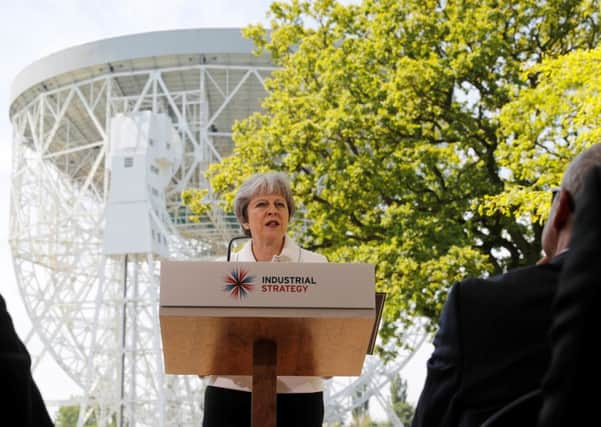Dominic Jones: We need a work experience strategy that pays off for young people in Yorkshire


It enables them to understand the young people of today, look at their skill strengths and develop recruitment policies accordingly. This approach now needs to be developed further following the Budget so more young people can be successful in life and follow successful careers.
Unfortunately, many inequalities still exist; especially based on gender, ethnicity, geography and social class background. The most recent research shows only 44.8 per cent of young people had participated in work experience by Year 11.
Advertisement
Hide AdAdvertisement
Hide AdThis, alongside problems such as skills shortages, recruitment levels and lack of ambition, must now be tackled with new innovative solutions, such as an increased focus on readiness for employment in schools, more work experience placements, increased funding for out-of-classroom learning opportunities and other solutions that the Government should now now embrace.
Several of the targets set by the Department for Education’s Careers Strategy, such as the promise for each school to have a named careers leader in place by September 2018, take away from their good intentions. This is because of the budgetary pressures placed on schools who are undisputedly facing significant cash shortages.
Merely naming a careers leader without sufficient support and funding is a bodged plan at the very least.
We can all agree that careers development, including help to find work experience, should no longer be seen as an optional extra, but an essential part of one’s wider education experience. The Government should ensure that careers leaders and schools are funded properly to deliver this, and can co-operate with one another, to ensure that young people are prepared to enter the workplace and contribute to society.
Advertisement
Hide AdAdvertisement
Hide AdIn addition, the Government fails to collect data on the number of schools that offer work experience and take part in employment schemes – a move that is essential to ensure all young people can benefit from opportunities.
Also, its failure to mention work experience within its Industrial Strategy shows an inherent lack of belief that it does have a role to play in supporting employment, tackling skills shortages and helping economic growth now and in the future. It is essential these are resolved to ensure young people are supported by the Government on this issue.
Another thing that both young people, schools and stakeholders alike find increasingly relevant is the changing role and importance of work experience. A clear message from the National Youth Select Committee investigation on this very issue was that the traditional ‘one size fits all’ approach of two weeks does not work for all young people.
Other credible alternatives such as volunteering, shadowing, part-time work and internships were all put forward by representatives from varying sectors as a viable option to ensure young people can access work experience and all the benefits they bring.
Advertisement
Hide AdAdvertisement
Hide AdWork experience should evolve into an effective out-of-classroom practice, in which the needs of the individual are put first.
Throughout the country, plenty of work is being done by young people and schools alike to ensure better quality placements are secured and delivered.
For example, Barnsley Youth Council has been working to develop a ‘Work Experience Charter’ which states what to expect from all stages of work experience. Together with local businesses, they have created an ‘Employer’s Promise’ that sets out the role of companies.
Co-operation between young people, schools and employers across the region is key to creating the best opportunities for young people. Winston Churchill himself said ‘give us the tools and we will do the job’ – a wartime mantra that should be applied so my generation can do likewise and contribute to the economy.
Advertisement
Hide AdAdvertisement
Hide AdWe, as a generation, regularly feel let down by issues such as rising rent prices, the rise of knife crime, unaffordable and inaccessible transport and fear of university debts. By putting work experience and skills development at the forefront of the region’s agenda as we move into a post-Brexit period, we can ensure that Yorkshire develops into the economic powerhouse it can be.
Dominic Jones is a Member of the Youth Parliament for Barnsley. He is also a member of the Youth Select Committee 2018.